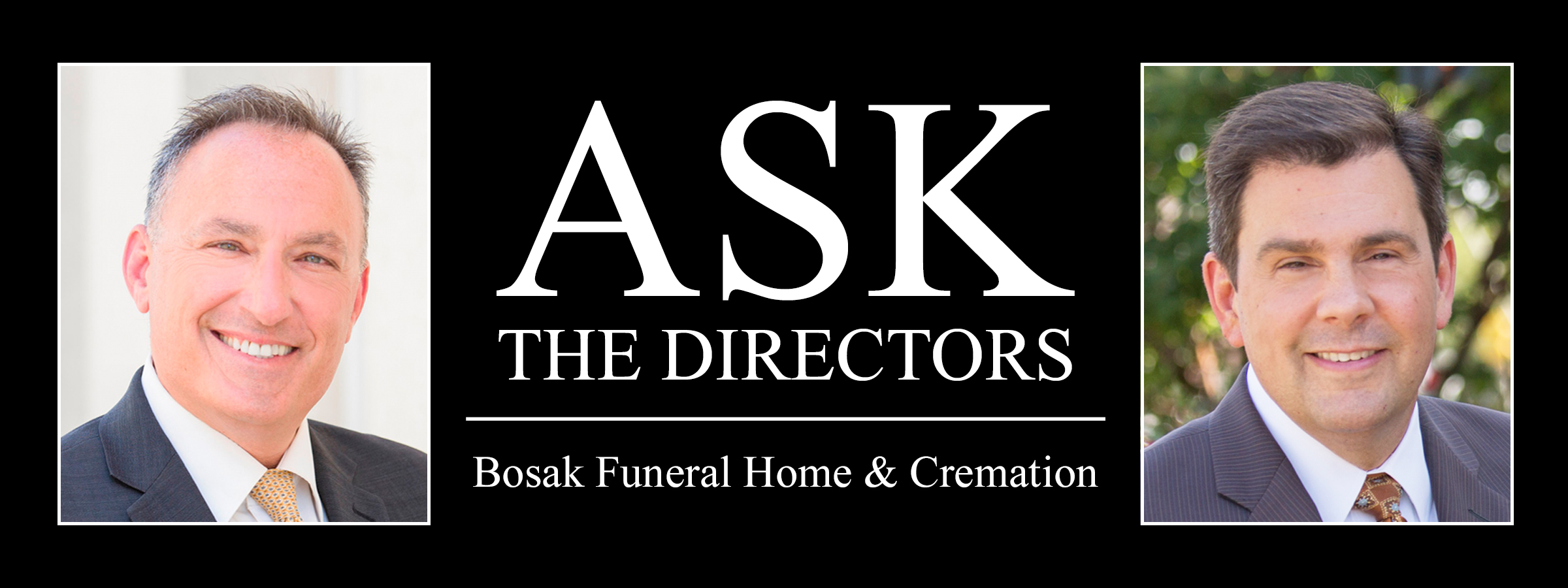Dear Director:
I always here the term “traditional” when people talk about funerals…. With more and more people deciding to cremate instead of being buried – how are there any truly traditional funerals anymore? I always thought “traditional” meant wake/church/cemetery.
Thanks for taking my question.
Maureen B., Stamford, CT
Dear Maureen:
The word “traditional” in funeral service has expanded in meaning in modern day funeral service. For many Christians and Roman Catholics, a traditional funeral used to consist of; calling hours (also referred to as a “viewing”, a “wake” or “visitation”) the evening before church with the body present (family chooses to have the casket open or closed dependent on their wishes), a church service with the body present followed by an interment or entombment at a cemetery with a committal service at the grave or crypt.
Depending on the size of the family being served, families usually decide to schedule anywhere from 2 to 6 hours of visitation at the funeral home on the evening before church and the cemetery. Some smaller families choose to hold an hour of visitation at the funeral home on the same day as the church service and cemetery. We call that scenario a “same day traditional”.
Also, contrary to what most people assume, cremations can have “traditional” elements incorporated in to them. Cremation is just a form of disposition… like being buried or entombed is a form of disposition. It is just the final step of the process. A family that chooses cremation for their loved one can arrange what is referred to as a “traditional” cremation. This is when the body is present at a wake (in either a rental casket that has an interior cremation container or a cremation casket), the body is brought to church and then, following church, the body is brought to the crematory. In essence, a “traditional funeral” and a “traditional cremation” are in many ways the same thing… the difference is that the body is taken to the crematory instead of the cemetery and that the family may choose to schedule some sort of committal ceremony, after the cremation takes place, when they inter, entomb or scatter the cremated remains.
Without question there’s been a distinct shift towards families choosing cremation… and there are many valid reasons why this shift has occurred. In many areas of the country cemetery property has become both scarce and expensive and many families are much more transient these days – family members can be scattered all over the world. For many families a cremation just makes more sense, but even these families tend to seek “traditional” elements when caring for their deceased loved ones.
I hope this helps answer your question… please contact us if you’d like more information.
Thanks for your submission.
Lee


Leave a comment